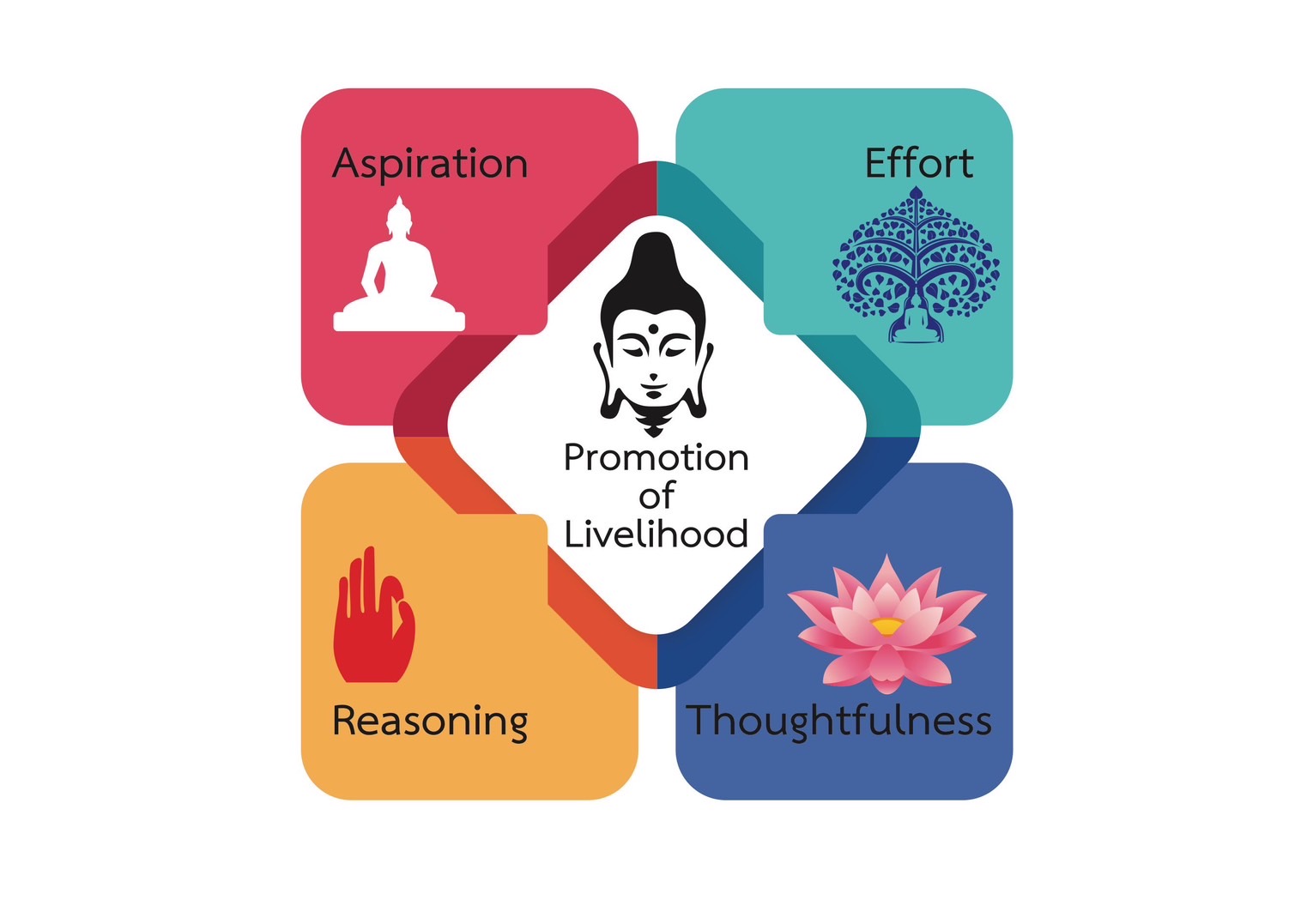THE PRINCIPLE OF IDDHIPĀDA 4 TO PROMOTE THE CREATIVE WISDOM-BASED LIVELIHOOD OF THE ELDERLY
Keywords:
The Principle of Iddhipāda 4, Livelihood Promotion, Elderly, Creative WisdomAbstract
Background and Objectives: In Thailand, Thai society is currently entering an aging society, which results in the increasing burden of caring for the elderly. Searching for hidden potential in the elderly is a guideline or process that makes the community to realize the importance and value of the elderly people. They are considered to be the wisdom of the community. The purposes include bringing those potentials out to find career paths and increasing economic value for the benefit of the elderly and the community at the same time. It also helps the elderly to have sufficient income for their lives without the need to depend on their descendants, as well as being a necessary force in driving the country's development to solve poverty. If there is an assembly to develop careers for increasing income, it can develop the quality of life of the elderly to have the ability to rely on themselves. Therefore, the researchers aim to study the objectives of such problems. This research aims to study the promotion of the creative wisdom-based livelihood of the elderly and apply the principle of Iddhipāda 4 to promote the creative wisdom-based livelihood of the elderly.
Methodology: The study employed a qualitative research method by collecting data from related documents and in-depth interviews. Key informants included two scholar monks, two representatives from the Community Development Office in Phimai District of Nakhon Ratchasima Province, two representatives from the Agriculture Office of Nakhon Ratchasima Province, two representatives from the Industrial Office of Nakhon Ratchasima Province, four elderly from Krachon Subdistrict Community in Phimai District of Nakhon Ratchasima Province, and four caregivers of the elderly from the families of the elderly in Nakhon Ratchasima Province. This research analyzed documents, related research, and the data from in-depth interviews.
Main Results: The results of this work could be outlined as follows; Firstly, the promotion of the creative wisdom-based livelihood of the elderly consisted of the participation of community members in promoting the livelihood of the elderly with local resources by developing their basketry skills to create jobs, income, make beneficial use of their free time, and to promote their physical and mental health. These results could have been used as a guideline for promoting the livelihood of the elderly, increasing their income, creating jobs or activities within occupational groups. It was the method that made the elderly feel engaged in the activities. Secondly, the principle of Iddhipāda 4 promoted the creative wisdom-based livelihood of the elderly. It was the application of Buddhist principles that could have anchored the spirit of the elderly to achieve success in promoting their livelihood.
Involvement to Buddhadhamma: The principle of Iddhipāda 4 in promoting the creative wisdom-based livelihood of the elderly involved the characteristics of Applied Buddhism. It consisted of Chanda (Aspiration), Viriya (Effort), Citta (Thoughtfulness), and Vīṁamsā (Reasoning). If this Buddhist principle was applied to the lives of the elderly, it could have created happiness for them.
Conclusions: Due to the constantly increased number of older adults in Thai society, promoting their livelihood in the present day was considered as important as promoting their ability to rely on themselves and adapt to their deterioration with age. The assistance and support from network partners on the livelihood of the elderly could have resulted in reducing the burden of care from the government sector.
References
Chansarn, S. (2012). Active Ageing of Elderly People and Its Determinants: Empirical Evidence from Thailand. Asia-Pacific Social Science Review, 12(1), 1-18.
Cronbach, L. J. (1990). Essentials of Psychological Testing (5th ed.). New York, United States of America: HarperCollinsPublishers.
Department of Older Persons (DOP). (2023). Department of Older Persons Strategic Plan B.E. 2565-2569 (2022-2026). Bangkok, Thailand: Department of Older Persons.
Kowtrakul, S. (1993). The Elderly Problems, The National Council on Social Welfare of Thailand under the Royal Patronage. Samut Prakan, Thailand: Somchai Publishing.
National Labor Development Advisory Council. (2013). Promotion of Career Opportunity for the Elderly. Bangkok, Thailand: National Labor Development Advisory Council.
Netwong, T. & Thirawan, R. (2019). The Effect of the Promotion Health Program to Enhance Mind Healthy Life for Elderly Following the Main Buddhist. Journal of Ratchasuda College, 15(1), 50-62.
Office of the National Economic and Social Development Board. (2016). Summary of Development Plan National Economy and Society Twelfth Edition 2017-2021. Bangkok, Thailand: Office of the National Economic and Social Development Board, Prime Minister's office.
Phangnarean, P. (2021). Community Participation in Career Development for Increasing the Elderly's incomes. Dhonburi Rajabhat University Journal, 15(1), 42-58.
Saardiam, T. (2020). Concept of Right Livelihood and Responsibility as Depicted in Buddhist Texts. Journal of MCU Peace Studies, 8(2), 432-444.
Saranjit, T. (2015). Problem of Poverty in Thailand. Eau Heritage Journal Social Science and Humanities, 5(2), 12-21.
Wanlamso, S. (2020). Guidelines for Occupational Promotion of The Elderly in Banrai Sub District Municipalities Hat Yai District Province Songkhla. [Unpublished master's dissertation]. Khon Kaen University. Khon Kaen, Thailand.
Zhan, L. (1992). Quality of Life: Concept and Measurement Issues. Journal of Advanced Nursing, 17(3), 795-800.

Downloads
Published
How to Cite
Issue
Section
License
Copyright (c) 2024 Journal of Buddhist Anthropology

This work is licensed under a Creative Commons Attribution-NonCommercial-NoDerivatives 4.0 International License.








